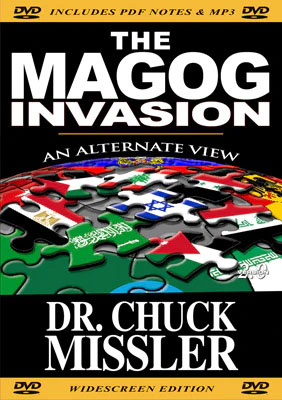It has been some time since our last Russian update.1 Tensions have been increasing as Russia grapples with its strategic dilemmas and prepares for the presidential elections in the year 2000.
Despite its economic decline, Russia still possesses 1,270,000 active armed forces; 800 intercontinental ballistic missiles; 540 missiles in 34 operational ballistic missile nuclear submarines; 66 strategic bombers; 16,800 main battle tanks; 87 tactical submarines; 166 principal surface combatant ships; and 1,775 combat aircraft.2
While we continue to reduce (and distract) our military establishment, Russia continues to prepare itself for the advent of a nuclear war. As we decommission our strategic assets, 90 of their 176 silos are being retrofitted with their next generation missiles. They are building a new underground command post inside Kovinski Mountain, and their new Yamantau Complex is almost the size of the Washington Beltway - except it's underground.
As we have mentioned in our previous briefings, about every 14-16 months they actually practice a preemptive strike against the U.S. heartland. The last one was in October of 1996 when their entire triad (land, sea, and air arms) were exercised. A surface-to-surface SS-25 was launched against its practice target; a Typhoon ballistic submarine launched an SS-18 from the arctic and hit its target in Kamchatka; and two cruise missiles (with a range of 2,500 miles after their air launch) were successfully deployed from bombers participating in the "training" exercise. There's nothing like staying in practice.
The military is, nevertheless, in shambles. There are reports that the Russian officers are living on the edge of survival and penury. We hear that no servicemen's allowances have been paid at all in 1997. Their demoralization is a major political reality. This, of course, is not stabilizing!
Russia's strategic dilemma continues. Their economy is heavily dependent upon the export of raw materials and arms, and so their need for an extended power base is desperate. The Kremlin is critically in need of cash.
Westward Prospects?
Their prospects westward are clouded by the German-dominated European Union. Now exacerbating these pressures are the recent additions of three Warsaw Pact countries-Poland, Hungary and the Czech Republic-to NATO. While France failed in its attempt to have Romania and Slovenia also included, this is viewed by some as a future possibility. None of this, needless to say, is welcomed by the Kremlin.
Kings of the East?
The Russian prospects eastward are clouded by an inevitable enemy across an undefendable land border: China. While a growing strategic alliance between Russia and China is the official policy, this marriage of convenience appears to be serving China more than Russia. And it is increasingly coming under criticism by the Kremlin's critics.
The Southern Alternative
The only option available to Russia is to the south: radical Islam. So the deadly embrace continues. Their principal ally southward is Iran. (This is precisely the profile predicted by Ezekiel.3) Iran's continued progress to upgrading its arms technology-chemical and biological, as well as nuclear-has prompted disturbing rhetoric from both the U.S. and Israel, and Tehran is fearful of another preemptive strike. (The 1981 preemptive strike by Israel against Iraq's Osiraq nuclear facility drew criticism from the U.N., but it is disturbing to imagine what the results of the Persian Gulf War might have included had Israel not done so.)4
The Men Who Would Be Gog
The political instability in Russia continues as Yeltsin's rivals become increasingly outspoken. General Lev Rokhlin appears to be joining General Aleksander Lebed, the former security chief, Communist Party chief Gennady Zyuganov, and the maverick "Mad Vlad," Vladimir Zhirinovsky, in the stampede to position themselves for the next presidential election in the year 2000. All of them are extreme nationalists, militaristic, and not nearly as comfortable for Washington as Yeltsin seems to be.
Ezekiel 38 on the Horizon?
The positioning for the inevitable invasion of Israel - as detailed by Ezekiel in Chapters 38 and 39 - appears to be continuing. It is, indeed, an exciting time to do our homework! Have you done yours?
For more background on the Biblical perspective of our current global horizon, you may want to review the briefing package, The Magog Invasion.
Notes:
- Personal UPDATE, 7/96, p. 2-3.
- Backgrounder, June 1997, from Intelligence International Ltd., The Stoneyhill Centre, Brimpsfield, Gloucester, GL4 8LF, UK.
- Ezekiel 38:5.
- Dan McKinnon, Bullseye Iraq, Berkeley Books, New York NY, 1987.






